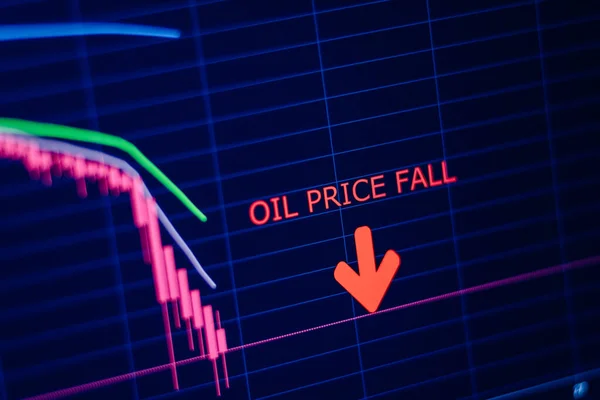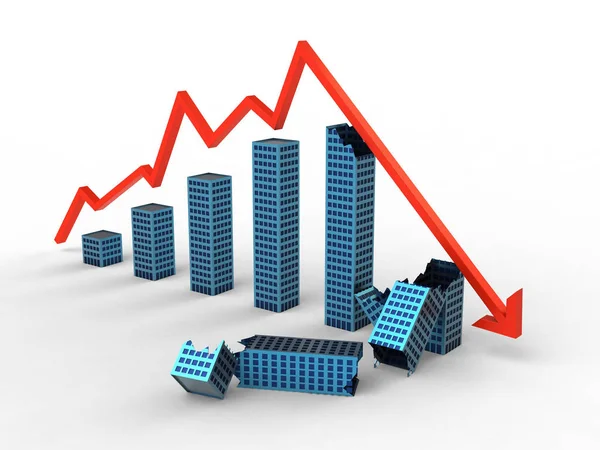In the unpredictable world of stock market investing, experiencing a downturn can be a nerve-wracking experience for investors.
However, understanding where money goes when stock prices drop can provide valuable insights into market dynamics and help investors make informed decisions during turbulent times.
Let’s delve into the mechanics of stock market crashes and explore practical strategies for navigating choppy waters.
Read More: Will iRobot Be able to Navigate Through Turbulent Waters?
Understanding Stock Market Crashes
A stock market crash occurs when there is a significant decline in stock prices across the board.
These downturns often occur suddenly, following prolonged periods of bullish market trends characterized by rising stock prices.

Stock prices are driven by the fundamental principles of supply and demand. When there are more sellers than buyers in the market, stock prices tend to decline as investors seek to offload their holdings.
This imbalance in supply and demand can be fueled by various factors, including fear, uncertainty, and changes in market expectations.
Where Does the Money Go?
Contrary to common misconceptions, the money invested in stocks does not simply vanish when prices drop. Instead, it undergoes a process of redistribution among market participants. Here’s a breakdown of where the money goes during a stock market downturn:
To Sellers:
Investors who sell their shares during a market downturn receive cash proceeds from the sale. This money allows them to exit their positions and potentially reinvest in other assets or hold cash temporarily.
To Short Sellers:
Short sellers, who bet against stock prices by selling borrowed shares, profit from market declines. They buy back shares at lower prices, pocketing the difference as profit.
To Buyers:
Investors who purchase stocks at discounted prices during a downturn acquire ownership stakes in companies at lower valuations. These buyers may benefit from future price appreciation when market conditions improve.
To Market Makers and Brokers:
Market makers and brokers earn commissions and fees from trades executed during market downturns, generating revenue for their services.
To Corporations:
Some companies seize the opportunity to buy back their own shares at reduced prices during market downturns. Share repurchase programs allow companies to return capital to shareholders and potentially boost stock prices in the long run.
Also Read: Can Peloton Stock Rise From The Ashes?
Impact on Investors
Paper Losses:
Investors experience unrealized losses on their investments during market downturns, reflecting the decrease in the market value of their portfolios. However, these losses are only realized if investors sell their shares at lower prices.
Bargain Hunting Opportunities:
Market downturns present opportunities for investors to purchase high-quality stocks at discounted prices. By adopting a contrarian approach and investing during downturns, investors can potentially capitalize on undervalued opportunities.
Risk Management:
Diversification and risk management become crucial during market downturns. Spreading investments across different asset classes can mitigate the impact of volatility and reduce the risk of significant losses.
Preparing for a Stock Market Crash:
Long-Term Perspective:
For long-term investors, maintaining a focus on investment goals and ignoring short-term fluctuations is key. Historically, the probability of losing money with a long-term investment horizon is minimal.
Risk Management:
As retirement approaches, consider adjusting asset allocations to reduce exposure to stocks and increase allocations to more stable assets such as bonds or cash. This helps mitigate the risk of selling stocks at a loss during retirement.
Index Fund Investing:
Diversified stock market index funds offer a simple and effective way to invest in the market’s overall return.
By avoiding the pitfalls of stock picking and day trading, investors can achieve acceptable returns over the long run.
Historic Stock Market Crashes:
Looking back at historic stock market crashes provides valuable insights into the resilience of the market over time. While market downturns can be unsettling, they are a normal part of the investment cycle.
Understanding the underlying factors driving market declines can help investors maintain a long-term perspective and avoid making emotional investment decisions.

In recent years, events such as the COVID-19 pandemic have caused short-term market volatility, leading to sharp declines followed by strong recoveries. Despite the temporary setbacks, the stock market has historically delivered positive returns over the long term, highlighting the importance of staying invested during turbulent times.
Understanding where money goes when stock prices drop sheds light on the mechanics of market downturns and provides valuable insights for investors.
By recognizing the redistribution of capital during downturns and adopting a disciplined investment approach, investors can navigate volatility with confidence and work towards achieving their financial goals over the long term.
While market crashes can be unsettling, they also present opportunities for savvy investors to capitalize on undervalued assets and position themselves for future growth.
Read Next: Is Beyond Meat Stock About to Surge?
DISCLAIMER
You should read and understand this disclaimer in its entirety before joining or viewing the website or email/blog list of SmallCapStocks.com (the “Publisher”). The information (collectively the “Advertisement”) disseminated by email, text or other method by the Publisher including this publication is a paid commercial advertisement and should not be relied upon for making an investment decision or any other purpose. The Publisher is engaged in the business of marketing and advertising the securities of publicly traded companies in exchange for compensation. The track record, gains, upside, and/or losses mentioned in the Advertisement, if any, should not be considered as true or accurate or be the basis for an investment. The Publisher does not verify the accuracy or completeness of any information included in the Advertisement. While the Publisher does not charge for the SMS service, standard carrier message and data rates may apply. To unsubscribe from receiving promotional text messages to your phone sent via an autodialer, using your phone reply to the sender’s phone number with the word STOP or HELP for help.
The Advertisement is not a solicitation or recommendation to buy securities of the advertised company. An offer to buy or sell securities can be made only by a disclosure document that complies with applicable securities laws and only in the states or other jurisdictions in which the security is eligible for sale. The Advertisement is not a disclosure document. The Advertisement is only a favorable snapshot of unverified information about the advertised company. An investor considering purchasing the securities, should always do so only with the assistance of his legal, tax and investment advisors. Investors should review with his or her investment advisor, tax advisor or attorney, if and to the extent available, any information concerning a potential investment at the web sites of the U.S. Securities and Exchange Commission (the "SEC") at www.sec.gov; the Financial Industry Regulatory Authority (the "FINRA") at www.FINRA.org, and relevant State Securities Administrator website and the OTC Markets website at www.otcmarkets.com. The Publisher cautions investors to read the SEC advisory to investors concerning Internet Stock Fraud at www.sec.gov/consumer/cyberfr.htm, as well as related information published by the FINRA on how to invest carefully. Investors are responsible for verifying all information in the Advertisement. As an advertiser, we do not verify any information we publish. The Advertisement should not be considered true or complete.
The Publisher does not offer investment advice or analysis, and the Publisher further urges you to consult your own independent tax, business, financial and investment advisors concerning any investment you make in securities particularly those quoted on the OTC Markets. Investing in securities is highly speculative and carries an extremely high degree of risk. You could lose your entire investment if you invest in any company mentioned in the Advertisement. You acknowledge that we are not an investment advisory service, a broker-dealer or an investment adviser and we are not qualified to act as such. You acknowledge that you will consult with your own independent, tax, financial and/or legal advisers regarding any decisions as to any company mentioned here. We have not determined if the Advertisement is accurate, correct or truthful. The Advertisement is compiled from publicly available information, which include, but are not limited to, no cost online research, magazines, newspapers, reports filed with the SEC or information furnished by way of press releases. Because all information relied upon by us in preparing an advertisement about an issuer comes from a public source, it is not reliable, and you should not assume it is accurate or complete.
By your subscription to our profiles, the viewing of this profile and/or use of our website, you have agreed and acknowledged the terms of our full disclaimer and privacy policy which can be viewed at the following link: www.SmallCapStocks.com/Disclaimer and www.SmallCapStocks.com/Privacy-Policy
By accepting the Advertisement, you agree and acknowledge that any hyperlinks to the website of (1) a client company, (2) the party issuing or preparing the information for the company, or (3) other information contained in the Advertisement is provided only for your reference and convenience. The advertiser is not responsible for the accuracy or reliability of these external sites, nor is it responsible for the content, opinions, products or other materials on external sites or information sources. If you use, act upon or make decisions in reliance on information contained in any disseminated report/release or any hyperlink, you do so at your own risk and agree to hold us, our officers, directors, shareholders, affiliates and agents harmless. You acknowledge that you are not relying on the Publisher, and we are not liable for, any actions taken by you based on any information contained in any disseminated email or hyperlink.
Dean is a freelance content writer who contributes to various Digital Media Companies and independent websites all over the world. He has over 20 years of financial industry experience, so it’s safe to say he’s well informed.












